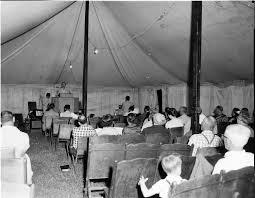“You will sleep at my house tonight.” The stranger pointed to a thatched dwelling in the distance. His words came more as factual statement than invitation.
The high school boy had emerged as I sat straddling my motorbike atop the gravel road not far from Africa’s largest lake. Daylight had faded. My bike’s head-lamp struggled to project its beam outward through an increasing mist. Well, I’m not awash in a downpour. Not yet.
I had brought the pikipiki to a stop once the drizzle began. It was clear I was in for a long, perhaps soaking, ride the remaining fifty miles home. The bike had been through a lot since leaving Nyabisawa Mission early this morning. Bouncing and slipping, zigzagging ruts carved from cattle tracks and rivulets of earlier rains.
The boy’s first greeting had framed a question, “Hello, sir. My name is Joseph. Where are you going?”
“Hello Joseph. I’m Jerry. Taking the long way to Nyabisawa. Going home.”
“But sir,” his voice growing solemn, “you do not want to travel this way at night-time. The next village ahead is Rodi. Bad people are there these days. When you pass through they will throw stones at you. It is not a safe place to pass.”
Reaching forward to wipe gathering moisture from the head lamp, I pondered the revelation. The schoolboy turned and with the wave of a hand indicated a gathered trio of grass-roofed huts not far off the road. Night was descending and in equatorial Africa the shift from light to dark occurs in a heartbeat.
“You will sleep at my house tonight.”
Once the pikipiki was secured inside the largest hut, I followed my young host to my impromptu sleeping quarters. It felt like I had stepped onto the center of an open National Geographic magazine. . . Africa bush-country – Circular hut. Thatch roof. Floor of hardened earth smooth and clean-swept. . .
“I will stay out here in this room”, Joseph announced. I glanced about as we passed through. With the exception of a sisal mat rolled up at the far wall, the room was bare.
“The house is my mother’s. She is the second wife of my father. She is not here tonight.”
We passed through an opening into the hut’s only other room. It was small, the area barely allowing for a single, narrow cot. The light of his kerosene lantern revealed the cot’s neatly-tucked bedding, a navy blue blanket. A mosquito net, much like a larger one in my own bedroom back at the mission, draped the bed – hanging suspended from a roof support. The net appeared adequate to keep any malaria-laden pests at a distance.
This small side-room and mosquito-shielded bed normally served the high-schooler as his own sleeping space. Nothing I said could persuade him to give me the other room and the floor mat. This was the African way with guests.
I wonder how Ann’s doing? Wish I had a way of being in touch.
The big 9 p.m. meal in the main hut with my engaging young host and family ensured the deep, restful sleep that came afterward.
Stirred awake by a string of rooster crows, I emerged from the mosquito netting, bundled it in place above the bed in a loose knot, and joined Joseph for bread and sweet hot tea that smelled slightly of charcoal embers. I thanked all the family, pulled on my helmet and was on my way. The last image I took in was through my rear-view mirror. Joseph – white-toothed smile gleaming from his ebony Luo face – waving a vigorous farewell.
I passed through Rodi without incident, no rowdy mischief-makers, no stones to dodge.
Quite a weekend. Traversing a swollen river, my bike and me, aboard makeshift canoes. Preaching and fellowshipping at a Lake Victoria village. Hosted and dined overnight in a home rivalling the finest of Kenya’s tourist hotels.
It was the weekend marking my wife’s resolve going forward. . .
If my husband is out in remote places and doesn’t make it back when expected. If I don’t hear from him. I will not worry. I’ll pray and trust he’s fine. This is Africa.
©2018 Jerry Lout


